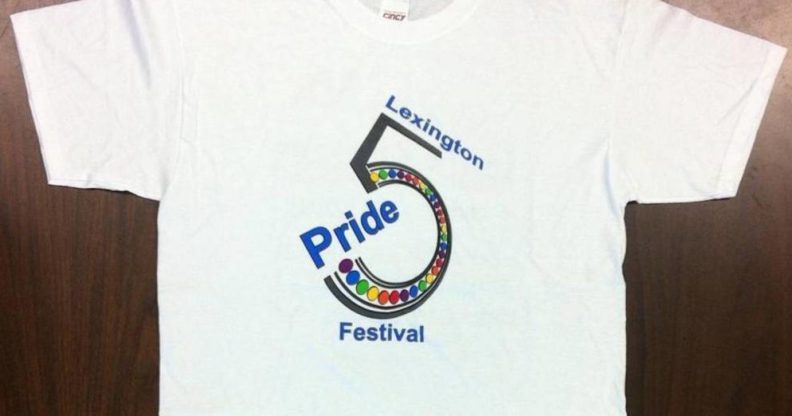Printer who refused to make Pride t-shirt says he shouldn’t have to promote message against his beliefs

The t-shirt design that Hands-On Originals refused to print (Lexington Pride)
A print-shop owner who refused to make a Pride t-shirt has argued in the Kentucky Supreme Court that he shouldn’t have to promote messages that conflict with his religious beliefs.
Blaine Adamson, who owns Hands-On Originals in Lexington, Kentucky, refused to print a t-shirt promoting an LGBT+ Pride event in 2012.
The case has been dragging on ever since and finally landed in the state’s highest court on Friday.
The printer refused to print the Pride-themed t-shirts
In the court on Friday, Adamson’s attorney argued that the First Amendment means that he does not have to print messages he disagrees with, according to NBC News.
Meanwhile, an attorney for the Human Rights Commission said the printer could not pick and choose which members of the community he was willing to serve.
The court will make a decision on the case at a later point.
The case has been ongoing since 2012 when the Gay and Lesbian Services Organization placed an order in advance of a Pride march.
If it was about the message being printed then Hands On Originals would have declined to do the work immediately.
Originally, the Human Rights Commission ruled that his refusal to print the t-shirts breached a city ordinance which prevents local businesses from discriminating.
That decision was later overturned by a Kentucky court of appeals, which found that the ordinance didn’t extend to speech.
Human Rights Commission was ‘surprised and disappointed’ at 2017 ruling
Following that decision, the Lexington Human Rights Commission said it would appeal the ruling to the Kentucky Supreme Court.
Speaking to Fox News in 2017, Raymond Sexton, executive director of the Lexington Human Rights Commission, said they were “surprised and disappointed” that the original ruling was overturned.
“Our message remains the same, that if it was about the message being printed then Hands On Originals would have declined to do the work immediately. It wasn’t until they found out what event the shirts were for that they had a problem.
Meanwhile, speaking after the ruling in 2017, Adamson said: “When they present a message that conflicts with my religious beliefs, that’s not something that I can print. That’s the line for me.
“I never thought living out my faith would be the cause of so much controversy,” he continued.

